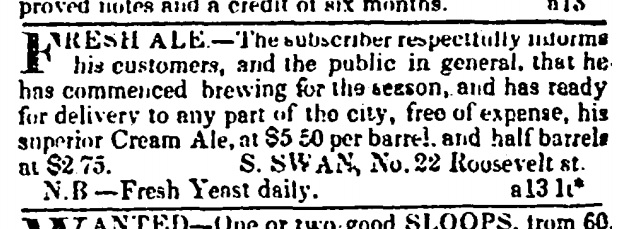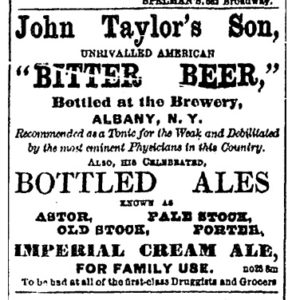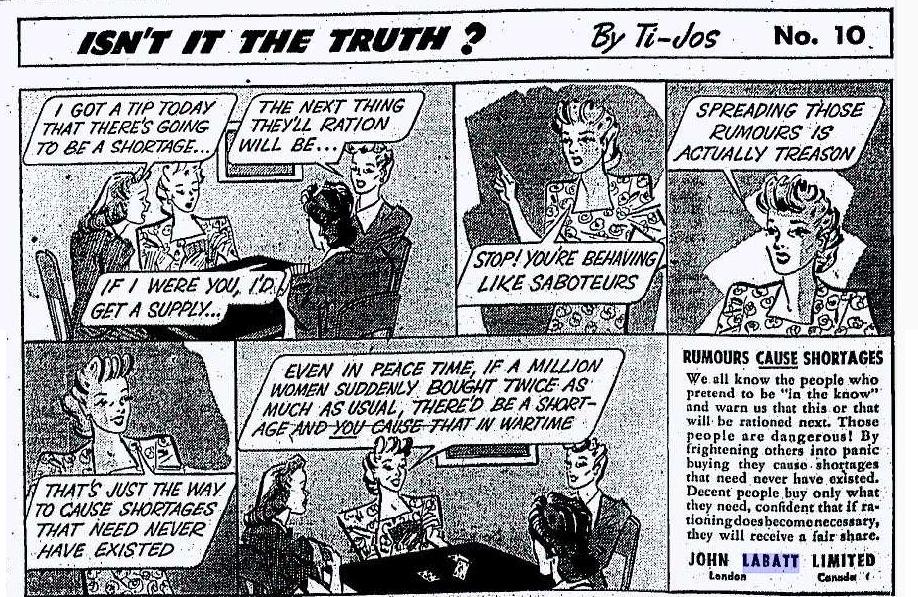=> Beer creates aggregation. Obviously the ad is about might. Brewing in North America has always been about the generation of might. A powerful place within the industry. Leveraging the wealth it generates out into society. It took a few generations of the pre-industrial pre-Revolutionary Dutch brewers of New York state to achieve it. It took brewers like John Taylor a lifetime in Albany of the mid-1800s. It took E.P. Taylor about a few decades in the mid-1900s. And it took a decade for microbrewing to spawn millionaire and billionaire big craft from 2005-15. Through co-operation, collusion and control brewing creates the opportunity to generate wealth, independence and even power. This is good as it is success. Sipping is not so good for success.
=> Beer is a means to an end. Not only does brewing aggregate but it does so in a repeated similar pattern. If you follow Michigan brewer Larry Bell on Facebook you will notice he spends a lot of time not brewing in Michigan. He in on a boat in the Gulf of Mexico or some such place. Interestingly, members of the mid-1750s Dutch brewing dynasties did the same thing. Anthony Rutgers IV was a privateer and lived on Curacao tending to the Hudson valley Dutch plantation trade that extended well past the British invasion as well as the American Revolution. Beer actually appears to dislike folk not improving their station in life. It attracts money too readily. Big craft branch plants on the east coast or in Europe are just another form of expansive market control that beer has always undertaken.
=> Beer is cyclical. Just as Mr Bell is retracing the wake in the warm water Mr Rutgers sailed in the 1700s, brewing repeats itself in overlapping cycles. Anything that imposes on the production of grain seems to restart the clock. The Hessian fly causing the deprivations and hardships of 1788-90 are not unlike the relationship between the Civil War and, as with the standard rules of baseball, the development of a homogenized taste for premium lager… not to mention the later dominance of industrial light lager after World War II. It also takes on and defeats – or at least holds down – the challenges of traditional brewsters’ beer houses, self-sufficient estate brewing, temperance drinks, imports, brew-your-own operations, micros, home brewing and now new nanos as they come forward each in their turn. These things come in waves but brewing continues. It knows it needn’t back down.
=> Beer is responsive. It needs to react to external forces. The overlapping cycles are not determined by brewing. It is the natural response of brewing to reassert itself in the face of crisis to maintain production and profit. It also reflects simple cultural change. It’s not by chance that micro brewing takes off in the 1980s concurrent with factors like the variety of cable TV and androgyny in pop music. It’s the decade that the range of choice explodes. Micro brewing follows that greater trend. Had the pioneers of micro not come forward rest assured other pioneers of micro would have come forward in the same cities in pretty much the same way. Beer responds in the late 1700s and early 1800s to scientific advances in agriculture in the same way. The Agricultural societies which arose after the end of the War of 1812 gave stability to the new farming lands and spread the news about scientific brewing just like cable TV informed consumers that they wanted the new beer because they wanted new cheese. Beer is responsive because it is one man – the ancient everyman – now carrying the keg, now armed with stainless steel at scale. He (or she) is fighting ocean going container ships stacked with uniformly Heineken green cargo boxes.
=> Beer is pervasive. Because brewing has transitioned in response to societal change over and over it has earned its place. Unlike, say, the mustards on the grocery shelf the aggregating tendency of beer needs a team. It asks for loyalty and gets it. Why would inexpensive joy juice not? It’s the mild affordable anesthetic that gets you through life. Tribal affinities are natural whether they are constructed of the cult of craft or light lager in the NASCAR stands. It’s heavy metal and new country. Craft and social media. Trains in the late 1800s sent out the message of better cheaper beer than the local brewer was making or charging. Trains from places like St. Louis and London, Ontario carrying casks branded with names like Anheuser-Busch and Carling reaching out from larger and larger breweries placed near those other train tracks which reach out into the grain fields. Beer informs you about both progress and legacy. It’s where you’ve been and where you are going. Get in line.
=> Beer resists. Because beer wants to keeps its rewards it pushes back and fights. If the fluid in the Bud ad up there was Sierra Nevada Pale Ale you would not have to change out many of the other elements. The boosters would just have to swap places. It does not like to hear other points of view. Big craft – including its co-opted communicators – is as much in lock step as the Bud ad as much as the 1600s to 1700s Dutch then 1800s to 1900s German brewing dynasties, each taking care to include all the cousins in the benefits. The business formula is too certain, too successful to do otherwise. No wonder we have identatext book after identatext book. Beer likes puff. We already see discussion in craft like this has fallen away. Disagreement is now disagreeable. It’s all the Borg. Bud is truly not backing down. No beer backs down. Because? America.
I love it. I had a Bud on Thursday night. I have one a couple of times a year. About as often as I have mashed turnip. They are both unpleasantly bitter and they are both cultural touchstones. Neeps are the ultimate statement of Scots cuisine. Bud is America. I get four clear phases: sweet rice, lumber, dirty bitter hop and a stale finish which more of that sweet rice quickly remedies. You are not supposed to like it. Turnip? It’s not yummy either. You are supposed to accept it like the other realities of life and be grateful for the comfort it brings. Bud tells you about North American life, too. It’s not fussy. Lemon flick. It meets you on the level. Given the existing kit that’s long paid off, it’s easy to make following instructions out of readily available resources – even as it tells you it’s difficult to make. You need to rely upon its word on that point even though you can make an acceptable substitute for less in your own kitchen. You can actually make good beer easily in your own home. But you don’t. Because you are part of something bigger. Something that works. The same way. Every. Time.





